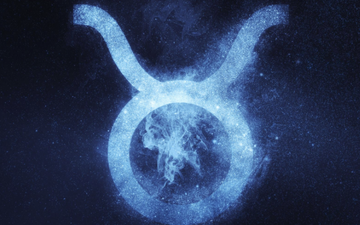
Do you often find yourself reaching for a soda? Does your meal feel incomplete without a Coke to accompany it? Do you drink sodas and energy drinks every day, sometimes more than once a day? If so, it is possible that you may have developed an addiction to them.
Addiction is defined as physical or psychological dependence on a substance.
This article explores the symptoms, causes, diagnosis and treatment of Coca-Cola addiction, and the impact of excessive consumption on your health.
Signs of addiction to Coca-Cola
According to Dr. White, some of the signs and symptoms of a soda addiction can be similar to the symptoms of an alcohol or drug addiction. Although you may not experience intoxication or altered consciousness from them, she says you may have symptoms such as:
- Cravings: You may experience constant cravings for carbonated drinks that are difficult to resist.
- Lack of control: You may have lost control over your consumption of carbonated drinks. For example, you may consume them in larger quantities than you originally thought.
- Tolerance: You may develop a tolerance to fizzy drinks, so you may feel the need to consume more and more to achieve the desired effect.
-Withdrawal: You may experience withdrawal symptoms such as irritability and difficulty concentrating, or physical symptoms such as headaches and tremors, if you are unable to satisfy your cravings for the drink you want.
Causes of soda addiction
These are some of the possible causes of soda addiction:
- Addictive ingredients: Carbonated drinks contain ingredients such as caffeine and sugar that can be addictive. For example, like addictive substances like alcohol and drugs, caffeine causes the brain to release the feel-good hormone dopamine, making you want more of it.
-Lifestyle habits: You may associate a Coke with certain meals, such as fast food or pizza, and the meal may feel incomplete without a soda.
-Personal preferences: You may enjoy the fizzy, sweet taste of sodas and make it a habit to choose them over water or other options.
The impact of a soda addiction
Addiction to carbonated drinks is harmful because their consumption is linked to several serious health conditions, such as:
-Diabetes;
-Eating disorders;
- Gastrointestinal problems;
- Heart diseases;
- High blood pressure;
- High cholesterol;
-Kidney stones;
- Metabolic syndrome;
-Obesity;
- Stroke;
- Tooth decay.
For example, a 2013 study found that regular soda drinkers are overweight compared to non-drinkers. A 2012 study found that greater consumption of these beverages is associated with a higher risk of stroke. Another 2013 study notes that soda consumption is linked to kidney stone formation.
How to drink less soda
If you think you drink too much soda or that you may be addicted to it, it's a good idea to try to reduce your consumption. Here are some tips that can help you reduce your use:
- Choose your approach: You can give up Coca-Cola immediately, or, if you're experiencing withdrawal symptoms, do it gradually. For example, Dr. White says you can gradually reduce the number of sodas you consume in a day. It may be helpful to set goals such as two sodas a day this week; a Coca-Cola a day the following week and so on.
-Try healthier alternatives: Dr. White recommends replacing carbonated drinks with a healthier alternative, such as sparkling water. Look for sugar-free options that don't have added sugar or sugar substitutes.
-Drink plenty of water: You should make a pact with yourself to drink at least as much water as you drink soda every time you drink a soda. So if you are drinking a can of Cola, you should drink at least a glass of water along with it. Water can help quench your thirst, fill you up, and you may find that you don't need a Coke as much as you thought you did.
Treatment for soda addiction
“Since soda addiction is not really a mental disorder, there is no official treatment. "However, in general, people struggling with food addictions tend to respond well to cognitive behavioral therapy (CBT)," says Dr. White.
CBT is very effective in helping people modify problematic behaviors, including binge eating, various forms of addiction, and other compulsive behaviors, explains Dr. White. CBT can help target problematic thought patterns that lead to unhealthy behaviors such as drinking Coca-Cola.





